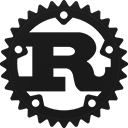1 2 3 4 5 6 7 8 9 10 11 12 13 14 15 16 17 18 19 20 21 22 23 24 25 26 27 28 29 30 31 32 33 34 35 36 37 38 39 40 41 42 43 44 45 46 47 48 49 50 51 52 53 54 55 56 57 58 59 60 61 62 63 64 65 66 67 68 69 70 71 72 73 74 75 76 77 78 79 80 81 82 83 84 85 86 87 88 89 90 91 92 93 94 95 96 97 98 99 100 101 102 103 104 105 106 107 108 109 110
//! Tracking the mouse in `bevy` is kind of annoying.
//! You gotta use [`Events`], and [`EventReader`]s, and even then, they only
//! get called when the mouse actually *moves*.
//!
//! [`Events`]: bevy::app::Events
//! [`EventReader`]: bevy::app::EventReader
//!
//! This crate aims to make this as easy as possible, by providing a
//! static resource that tracks the mouse position every frame.
//! First, add the plugin to your app:
//!
//! ```
//! use bevy::prelude::*;
//! use bevy_mouse_tracking_plugin::MousePosPlugin;
//! fn main() {
//! App::new()
//! .add_plugins(DefaultPlugins)
//! .add_plugin(MousePosPlugin::None);
//! }
//! ```
//!
//! Now, you can access the resource in your [`System`]s:
//!
//! [`System`]: bevy::ecs::System
//!
//! ```
//! # use bevy::prelude::*;
//! use bevy_mouse_tracking_plugin::MousePos;
//! fn dbg_mouse(mouse: Res<MousePos>) {
//! eprintln!("{}", *mouse);
//! }
//! ```
//! ...and don't forget to add the system to your app:
//! ```
//! # use bevy::prelude::*;
//! # use bevy_mouse_tracking_plugin::MousePosPlugin;
//! # fn main() {
//! # App::new()
//! # .add_plugins(DefaultPlugins)
//! .add_plugin(MousePosPlugin::None)
//! .add_system(dbg_mouse.system());
//! # }
//! # fn dbg_mouse() { }
//! ```
//!
//! This will print the screen-space location of the mouse on every frame.
//!
//! However, we can do better than just screen-space: we support automatic
//! transformation to world-space coordinates.
//! Change the plugin to this:
//!
//! ```
//! # use bevy::prelude::*;
//! # use bevy_mouse_tracking_plugin::MousePosPlugin;
//! fn main() {
//! App::new()
//! .add_plugins(DefaultPlugins)
//! .add_plugin(MousePosPlugin::Orthographic);
//! }
//! ```
//!
//! In a system...
//! ```
//! # use bevy::prelude::*;
//! use bevy_mouse_tracking_plugin::MousePosWorld;
//! fn dbg_world(mouse: Res<MousePosWorld>) {
//! eprintln!("{}", *mouse);
//! // Note: the screen-space position is still accessible
//! }
//! ```
//!
//! This will print the world-space location of the mouse on every frame.
//! Note that this is only supported for two-dimensional, orthographic camera,
//! but pull requests for 3D support are welcome!
//!
//! Additionally, we also support a resource that tracks mouse motion, via [`MouseMotionPlugin`].
//! The motion can be accessed from any system in a [`MouseMotion`] [`Res`].
//!
//! [`Res`]: bevy::ecs::Res
//!
//! As a final aside: the name of this crate is intentionally verbose.
//! This is because I don't want to steal a crate name, especially since
//! it is very likely that this crate will eventually be made redundant by
//! future updates to `bevy`.
//! I recommend renaming the crate in your `Cargo.toml`:
//! ```text
//! [dependencies]
//! mouse_tracking = { package = "bevy_mouse_tracking_plugin", version = "..." }
//! ```
use bevy::prelude::*;
/// Labels for the various mouse tracking systems, to be used for explicit ordering within stages.
/// The use of this is usually not necessary, as the mouse tracking systems reside in [`bevy::app::CoreStage::First`].
#[derive(Debug, Clone, Copy, PartialEq, Eq, Hash, SystemLabel)]
pub enum MouseTrackingSystem {
/// The system that updates the screen position each frame.
ScreenPos,
/// The system that updates the world position each frame.
WorldPos,
/// The system that updates the mouse motion each frame.
Motion,
}
mod mouse_pos;
pub use mouse_pos::{MousePos, MousePosPlugin, MousePosWorld};
mod mouse_motion;
pub use bevy::input::mouse::MouseMotion;
pub use mouse_motion::MouseMotionPlugin;
